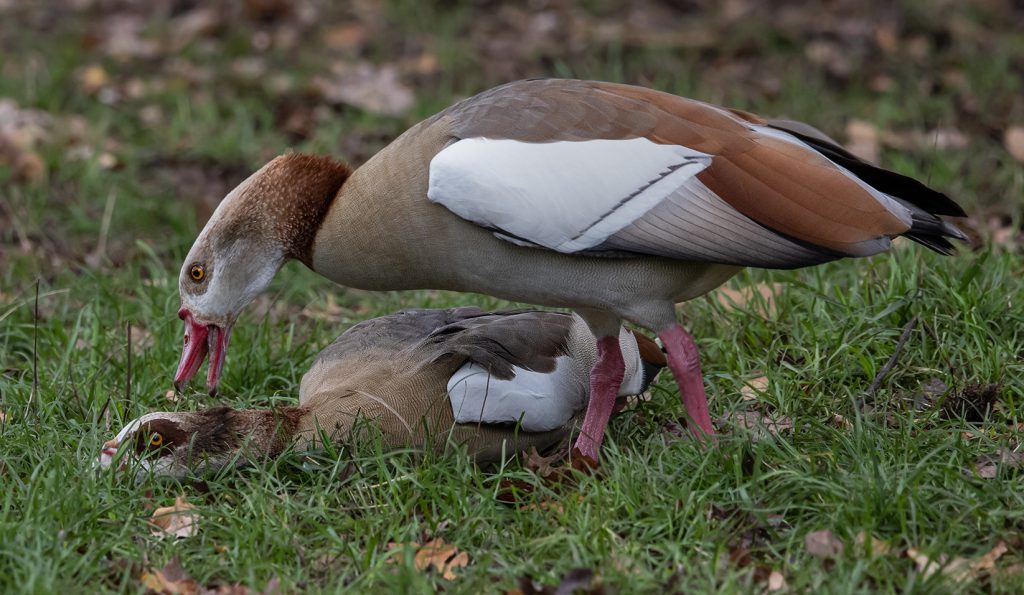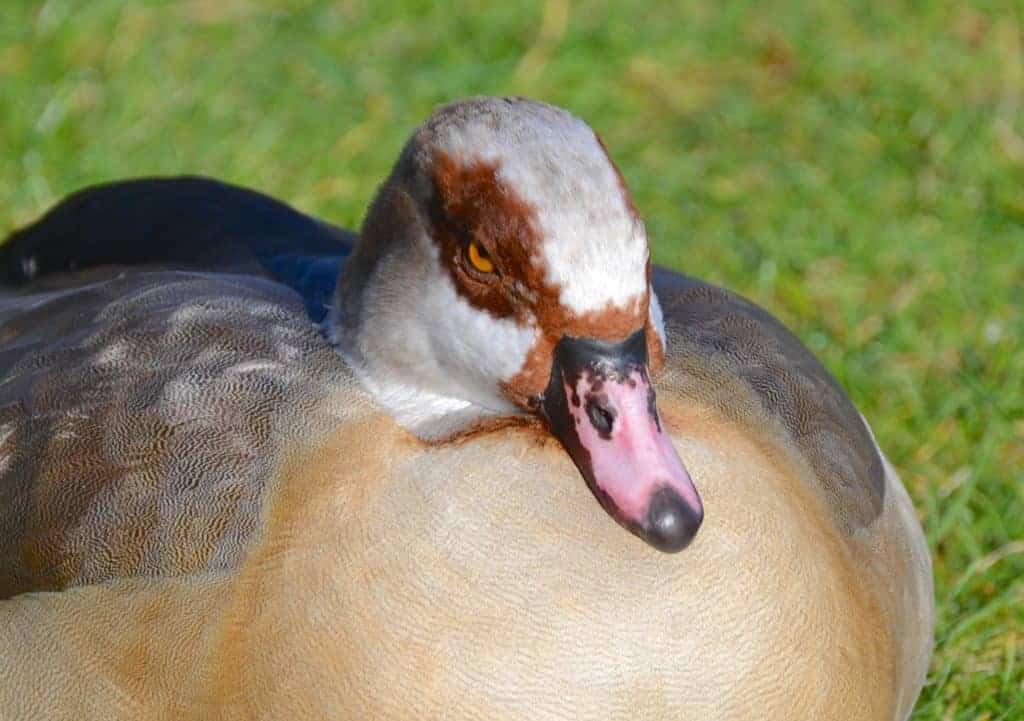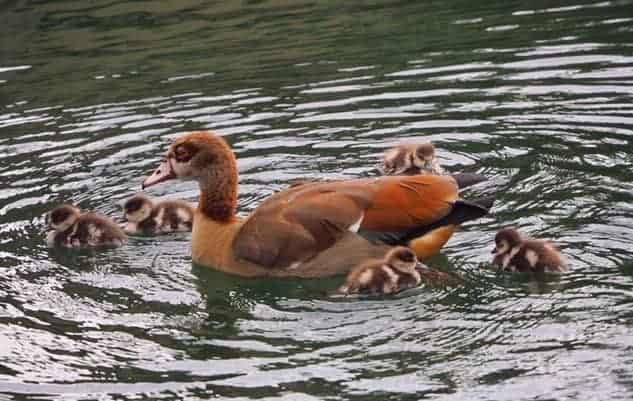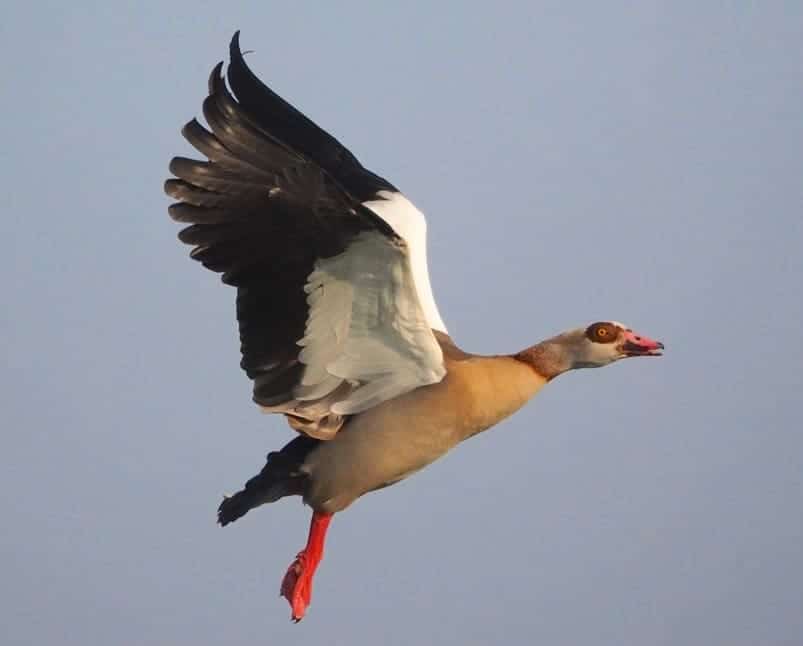Egyptian Goose

The UK Invasive Alien Species (Enforcement and Permitting) Order 2019 came into force on Sunday 1st December. The Order implements requirements contained in EU Regulation 1143/2014 on Invasive Alien Species, which sets out rules to prevent and minimise the impact of the introduction and spread of non-native animals and plants across the EU. The Order makes it an offence, amongst other things, to import, keep, sell, transport, breed or release into the environment, any of the listed plants and animals. Invasive alien waterfowl currently covered by this Order are Egyptian Geese and Ruddy Ducks Oxyura jamaicensis.

Alopochen aegyptiaca
Once common along the entire Nile valley and regarded as sacred in ancient times, the Egyptian Goose is no longer an easy bird to see in the country from which it takes its name, as it is largely confined to upper Egypt. It is, however, widespread and common throughout sub-Saharan Africa, with introduced populations firmly established in England, Holland, Belgium and France. Concerns over conflict with native species has led to restrictions on keeping them in Britain and Europe.

This distinctive small goose is a member of the shelduck family. In the wild it is invariably found in pairs or family parties, while flocks of 50 or more can be found after the breeding season. The sexes are similar: both have a conspicuous chestnut patch encircling the eyes, giving them a somewhat piratical appearance, while the brilliant white forewing is obvious when they fly.

Noisy and quarrelsome, Egyptian Geese thrived in captivity, but their aggressive behaviour ruled them out of some collections. As we stand now, owners of Egyptian Geese as companion animals, not kept for commercial purposes, may be granted a licence by their licensing authority to keep them until the end of the animals’ natural life, provided the following conditions are met:
• the animals were kept before their inclusion on the Union list;
• the animals are kept in contained holding and all appropriate measures are put in place to ensure that reproduction or escape are not possible.
In the wild, they like to lay their eggs in the abandoned nests of other birds. Incubation takes 30 days, and both parents tend the young. There is a captive albinistic strain.
FURTHER READING
BirdLife International (2021) Species factsheet: Alopochen aegyptiaca. http://datazone.birdlife.org/species/factsheet/22679993
Carboneras, C. et al. 2017. A prioritised list of invasive alien species to assist the effective implementation of EU legislation